Application Process Still Open For BUGS, The Local Charter School Now Into Its Second Year
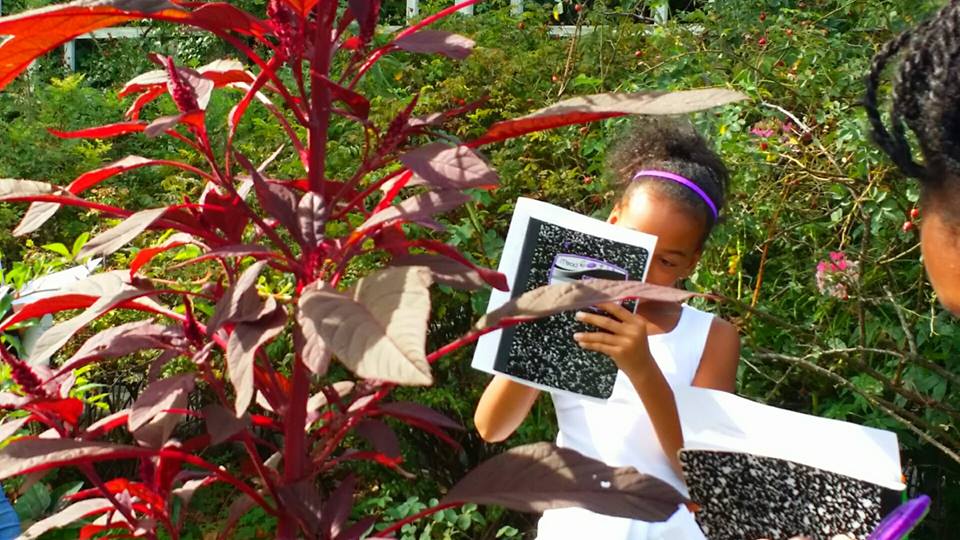
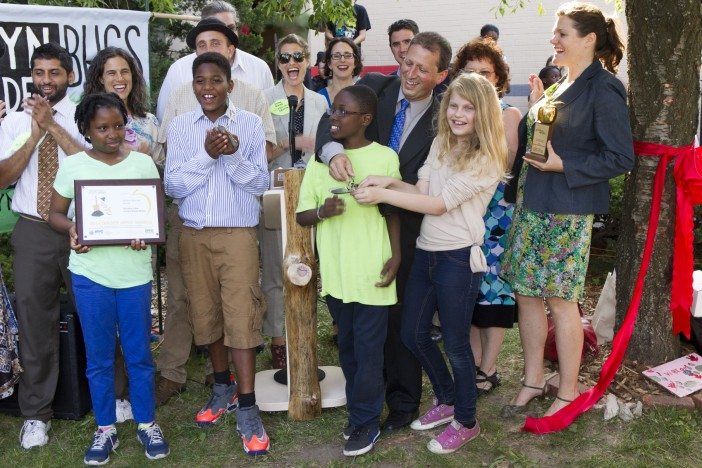
The Brooklyn Urban Garden School (BUGS) opened in the fall of 2013 with its first 6th grade class, and has since grown in the former Bishop Ford High School space at 500 19th Street to include the 7th grade — and this fall will the the first year with an 8th grade, as well.
In that time, the sustainability-focused, community-based charter school has adapted to the needs of its students while staying true to its mission: “to provide a hands-on, interdisciplinary education to young adolescents of all abilities and backgrounds, with a focus on real-world problem solving and the exploration of environmental sustainability.”
With the deadline to apply to the 6th or 7th grades at BUGS for the 2015-2016 school year approaching on April 1, families who may be considering it certainly have some things to weigh: Is the longer school day (8am-4pm, except Wednesdays) going to work for your child? Is the environmental focus the right fit? And are you willing to put up with some of the wrinkles of the school’s newness in exchange for the benefits of smaller class sizes, more teachers (there are two in most classes), daily recess, and so on?
For Craig Raphael, parent to a 12-year-old BUGS student, it’s been such a positive experience that he’s hoping to send his younger son to the school, as well.
“From talking to parents of 7th graders, I think the first trimester last year, it had some growing pains as it was getting its footing, but now has a strong positive culture and community,” he tells us, also pointing toward his honest review shared on Inside Schools. “I suspect next year, after it has a list of high schools where graduates are accepted to, it will become a star.”
To get an idea about what to expect at BUGS, we checked in with Susan Tenner, the school’s executive director and co-founder (and also a South Slope neighbor), who shared some thoughts about why she wanted to start the school, what makes this charter different from some others out there, and more.
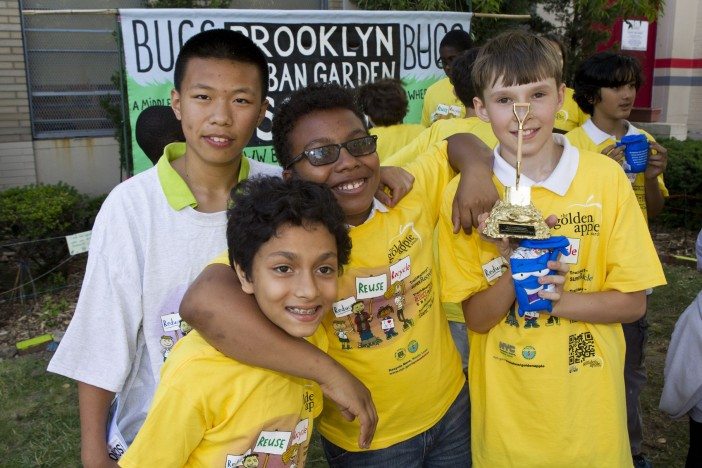
SSN: Tell us a bit about how the school got started, and how you got involved with it.
Susan Tenner: BUGS is the result of a five-year effort of a group of community members who joined together to create an additional, high-quality, public middle school option in District 15. The founding team was composed of local parents, educators, and professionals who are independent of any Charter Management Organization and who bring a wealth of expertise in education, fiscal oversight, and policy. Many members of the founding team went on to join the BUGS Board of Directors.
I personally got involved around 2009 when civil rights and education attorney Miriam Nunberg approached me about creating the school and joining the planning team. Miriam’s vision of a garden-centered school and strong commitment to student rights and equal access to quality education drew me in. We both had experience in education that we brought to the school’s vision — she being a former Special Education teacher who used gardening as a teaching tool, and me having experience with experiential environmental education. We, and other educators in the founding team, had witnessed first-hand the power of hands-on learning to motivate adolescents at this tender stage in development.
Creating and operating BUGS has been a thrilling and challenging experience for me personally. I threw myself into the project with passion and brought my administrative and project management skills to work with Miriam and the team to create the charter application, and ultimately the school. I like bringing the vision to life, balancing reality and vision, assembling and building the team, connecting and creating community, and applying a large breadth of skills, relationships, and strategic thinking to get it done.
Miriam and I always remarked that creating the school was in some way a parallel process to the kind of civic-minded inter-disciplinary project we ask our students to engage in. As we created the school in a collaborative team that considered the curricular, operational, financial, and political realms, so our students need to work on their projects in collaborative teams that consider environmental issues from all perspectives — as scientists, economists, social scientists, mathematicians, writers, and speakers.
BUGS is authorized by the New York State Board of Regents and is overseen by the New York State Education Department. BUGS was honored to be awarded a charter after a competitive and highly selective application process. A summary of our charter may be found here.
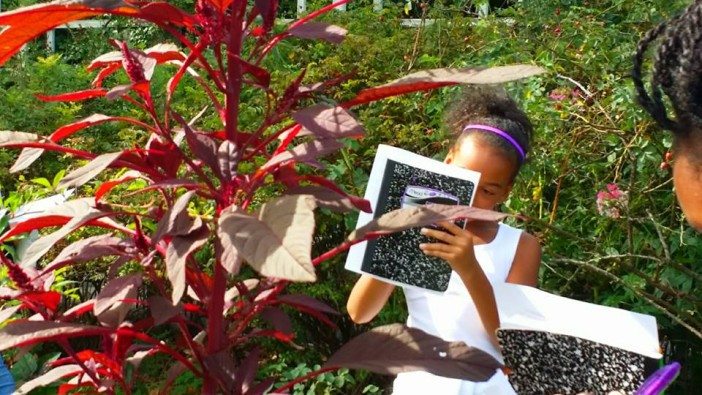
How does a community-based charter like BUGS work?
As stated above, we were founded by a group of community members to meet a community need. We commissioned a study with the Center for the Study of Brooklyn at Brooklyn College and saw the dearth of middle school seats for the upcoming babyboom, and the racial disparity of school performance in the district.
Once the team honed in on our model over the course of a couple of years, we decided we were ready to apply for the charter. We hadn’t initially set out to start a charter school. We considered the DOE route — but the charter route was more expeditious in meeting this need and provided the flexibility and autonomy to truly live our innovative school model.
We applied for the charter and it was awarded one in 2011 after a very rigorous selection process. The team had put in many volunteer hours and scraped our pennies together to create a Friends of BUGS non-profit entity and we worked on the application.
Once chartered, we were chosen to “incubate” at the New York City Charter School Center, where we relished the civilized office atmosphere, in-house expertise and resources, after meeting around kitchen tables for years. We planned every aspect of the school from board creation, to mission, vision, policies, procedures, curriculum frameworks, hiring, and community partnerships.
We are an independent private non-profit, overseen by a board of trustees, and authorized by the state. We are not part of a larger charter network, so we have the greatest autonomy and accountability to live out our vision and meet the needs of our local community first and foremost. The challenge is that we are more financially tight because we do not have the economy of scale and administrative offices that networks provide, and our school is small. We love the small, family-like atmosphere of the school and wanted to create a school where every child is known and does not fall through the cracks at this tender stage of adolescent development, but the operational reality is that we must run more efficiently as a small school with a small budget.
Our impassioned teachers and support staff all bring a can-do commitment to creating the school and making it the best it can be. Their drive and commitment to the kids, is the real engine that makes BUGS so vibrant and unique. Everyone knows they are creating something new and special, and we must balance tried and true practices with innovative ideas and risk taking. That is what we ask of our students!
We are very proud of the school’s diversity and the advantage it affords our students to learn and grow together. As a charter school we admit students purely by random lottery, with a mandated priority for students living in Community District 15. This randomness, after a breadth of outreach efforts, has a created a diverse group of learners — academically, socially, racially, and economically. We work to bridge and celebrate these differences in our schools’ culture programs and our small advisory groups where students meet almost daily with their advisors on social emotional growth, and academic focus and organizational skills.
How does the school pay for the space it’s housed in?
Charter schools get paid per student enrolled in their school on a bi-monthly basis. This “per pupil funding” is less than regular DOE schools get per student, but we supplement it with fundraising and strive to run more efficiently. This per pupil funding is the basis of our budget and is used to pay for everything it takes to run the school: from rent to student supplies, salaries, trainings, insurances, furnishings, technology, books, and copy paper….
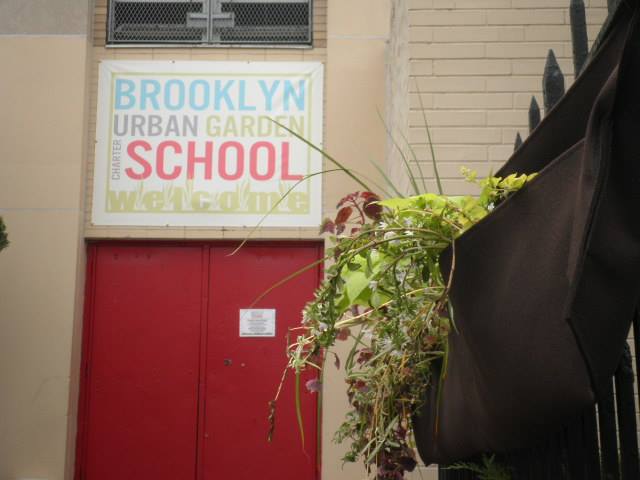
If you’ve got more questions about BUGS, feel free to call the school at 718-280-9556. Incoming 6th and 7th grade students throughout Brooklyn are welcome to apply for the fall semester — applications can be completed online, or may be submitted on paper, but they must be in or postmarked by April 1.




